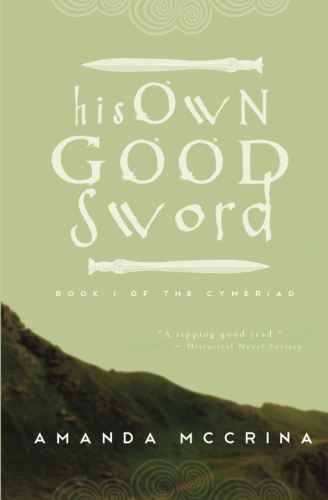The only people who criticize writers are those who can’t write.
I’m misappropriating the above quote a bit; probably the critics it’s referring to are the people who think of writers as lazy bums who muck about in coffeeshops, aimlessly browsing the internet, waiting for their muses to wake up—a pretty accurate description, actually, but that’s beside the point. I’ve included the quote here because I think it says something significant about attitudes in the writing community, especially the indie writing community. We’re less and less willing to criticize others’ work, because our own success hinges so much upon networking and making connections. If we criticize another author’s work, we can’t count on their support (or that of their devotees) for our own. In the modern writing world, it’s the equivalent of signing our own death warrants.
This aversion to criticism is problematic. It leaves us in an endless downward spiral: we dole out positive review upon positive review, not because we feel the work actually merits a positive review, but solely because we want fair reviews in return. Not even positive reviews, necessarily, but fair reviews, and we’re afraid that criticism—however much it may be merited—will lead the other author to judge our work unfairly, out of spite. This is partly the reason, I feel, for the disproportionate numbers of four- and five-star reviews on sites like Amazon and Goodreads for books that really don’t deserve four- and five-star reviews. And it really doesn’t help anybody in the long run—us, or the other author, or the reader. In fact, it’s downright selfish. It’s all about what benefits us in the short term, not what benefits others in the long term.
In the end, it comes down to what we want to accomplish. Getting positive reviews may be gratifying and self-confirming; it may even help us sell lots of copies and cement our success as authors. But it doesn’t help us as writers. It doesn’t help us grow or improve. That’s not to say there isn’t a place for overwhelmingly positive reviews, or that even the most critical reviews shouldn’t highlight the work’s redeeming qualities. But we should approach criticism with the right attitude. It’s an opportunity to hone our craft. It’s a benefit, not a setback.
Writing is hard work, and part of that is learning to face criticism, not avoid it or ignore it as the jealous vitriol of people who just don’t get it. Like most everything else, the harder the job, the richer the fulfillment in the end.
To put everything in perspective, I leave you with another quote, this one courtesy of P.G. Wodehouse:
A certain critic—for such men, I regret to say, do exist—made the nasty remark about my last novel that it contained ‘all the old Wodehouse characters under different names.’ He has probably by now been eaten by bears, like the children who made mock of the prophet Elisha: but if he still survives he will not be able to make a similar charge against Summer Lightning. With my superior intelligence, I have out-generalled the man this time by putting in all the old Wodehouse characters under the same names. Pretty silly it will make him feel, I rather fancy.

 I'm a student, amateur historian, coffee connoisseur, movie buff, hockey fan, cat lady, and all-around nerd. I'm currently pursuing a degree in history and political science at the University of West Georgia. In my spare time, I write historical fiction and fantasy. My debut YA historical fantasy novel His Own Good Sword was released on 7 May 2013.
I'm a student, amateur historian, coffee connoisseur, movie buff, hockey fan, cat lady, and all-around nerd. I'm currently pursuing a degree in history and political science at the University of West Georgia. In my spare time, I write historical fiction and fantasy. My debut YA historical fantasy novel His Own Good Sword was released on 7 May 2013.


